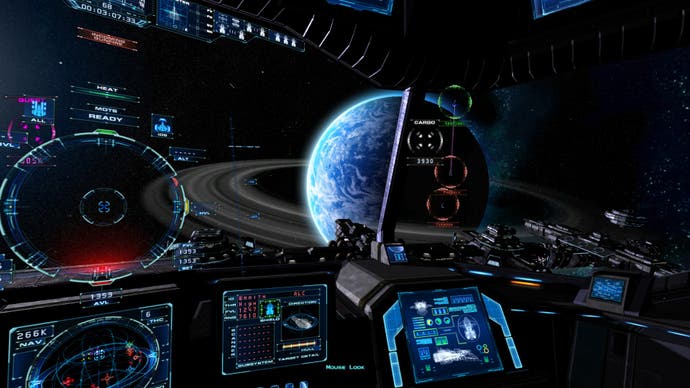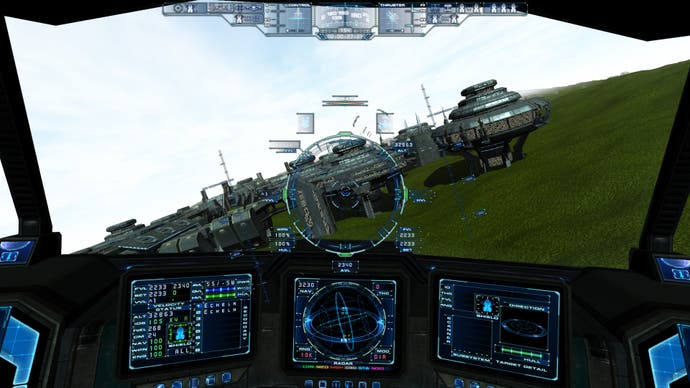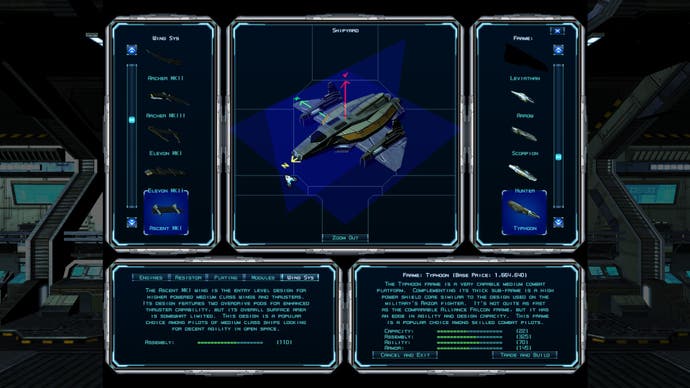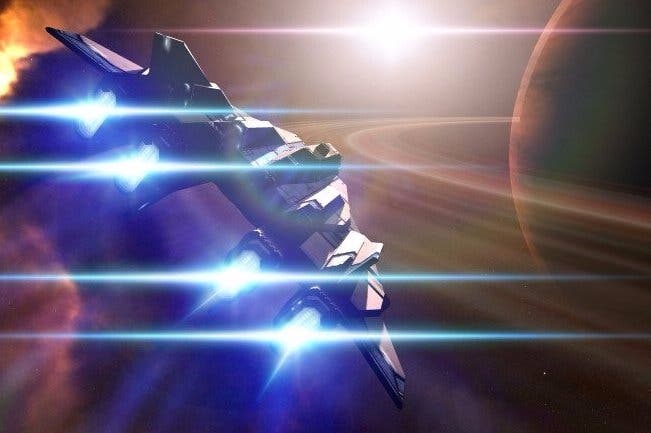Looking for an alternative space sim? Meet Evochron Legacy
Space is the place.
"It's like Elite Dangerous, but with actual s*** to do" is what a number of space gaming fans seem to think of Evochron Legacy. Most of them, no doubt, would put it in kinder terms: that thanks to all the bolted-on features that have been applied to Star Wraith 3D Games' flagship over the years, there exists within its current iteration a diversity that the 1.4 million buyers of Frontier's space adventure can only dream about.
If only it was that simple.
With Legacy being the first in the Evochron series of space games to arrive since the reappearance of Elite, it offers a point at which to reflect; both on where the genre has come from and where it may be headed. Jagged around the edges and fearless at heart, Evochron's extensive feature-set represent the pioneering past. In contrast, Frontier's flirtations with crowd-funding, vanity sales and season passes might be unseemly but are likely essential to securing a long-term future for a genre that has for years struggled to survive. While it's understandable why those disillusioned by Elite's apparent transformation towards becoming a minimally-multiplayer Eve have found cause to rally around the rough-and-ready Evochron, the implication that the two games are feature-comparable and content-opposites does both a disservice.

While Elite Dangerous has thrived in its digital surroundings, Evochron Legacy feels like a game out of time, like it belongs on a shelf alongside the likes of X-Com and Master of Orion, with their delicate sleeves and grip-sealed bags containing technical supplements, registration cards and 100-plus page manuals. It's not just that Evochron is a more traditional space sim that hails from an age when the genre was at its zenith, nor that you can easily fit the game on a single CD-ROM, but that the game is laden with such an abundance of instructional material that it often threatens to overwhelm before the game has had a chance to enthrall.
Leaving aside a digital manual that could easily soak through 100 pages if you chose to print it out, the in-game tutorial - which is as exhausting as it is exhaustive - takes at least three hours to work through, almost all of which time is spent parsing through purple chat text. What is so frustrating is that every machine-delivered word of it, unless you're a veteran of the series, is so utterly necessary to comprehending the game's oddball user interface and teasing, testing scope.
And yet, despite a control system for which barely a single key is left unmapped, Evochron Legacy isn't actually all that complicated - no more so than Elite. It's just so damned set in its own unorthodox ways. For example there are no tool tips or roll-over hints, precious little feedback during transactions, while various functions, like trading and missions, are nestled within cramped selection screens. Every unit of measure - speed, altitude, distance, weight - is vague and unfamiliar. Then, when you think you've grasped the oddities of the game's infuriating axis-flipping navigation chart and and take your first unsteady leap into hyperspace, your ship will invariably explode, with no reason for your demise either offered or given.

It's not that Evochron delights in punishing players (it would be unbearable if it did), more that it indifferently assumes you're willing to get on board with the demands of the genre; inertia-based movement, combat dogfighting, buy low/sell high commodity trading, planetary-scale spatial awareness and a Babylon Zoo-era tolerance for interfaces that are functional and fussy rather than economical and ergonomic.
And yet - and yet - if you're able to shrug your way through the incongruous second-hand jumble of the interface and forgive the recycled and often bland graphics, things inevitably fuse together to form an enjoyable whole. Where early on you might bemoan the simplistic docking sequences between identical stations, or the limited set of missions within spitting distance of every port, you quickly appreciate how the game never locks you into one path. With Elite Dangerous you're either a trader, an explorer or a fighter, to which some effort is required to retool from one career to another. With Evochron the transition is effortless and often unnecessary. Every ship is immediately and widely customisable, allowing you to, say, strip out all the cargo bays for fuel tanks or weapons, turning a trading ship into an exploration or combat vessel without having to grind a new hull or invest in expensive modules.
It's possible to complete a handful of missions, battle the enemy and ponder what lies beyond the horizon within the shortest of game sessions, while at the same time, knowing that every planet can be visited and that space is seamless, there's plenty of scope to just drift around the backwater sectors and let the game and it's systems gently you guide you from place to place.

The thing with Evochron Legacy isn't that is has features that other games lack, it's that its design doesn't hang off a multiplayer meta-game nor are its freedoms pinned back by persistence or some future expansion. Stations can be destroyed and rebuilt elsewhere, characters can breeze between single and multiplayer universes, while space is one brick-like seamless expanse rather than a series of vast compartments. True, the universe lacks all kinds of detail, the factions have no real identity and the ships don't command much presence, but there's an ease and openness to the gameworld that is all the more refreshing because, for all its faults that have come about via the comparative lack of resources that have gone into making it, it offers a complete series rather than a season one.
It's just that to enjoy it you have to put up with a terse and uncompromising set of systems and not a great deal of eye candy to sweeten the deal. If you're not prepared to endure then you'll not find much to enjoy, but if you can ride it out you'll discover a game with integrity and more than enough s*** to be getting on with.
